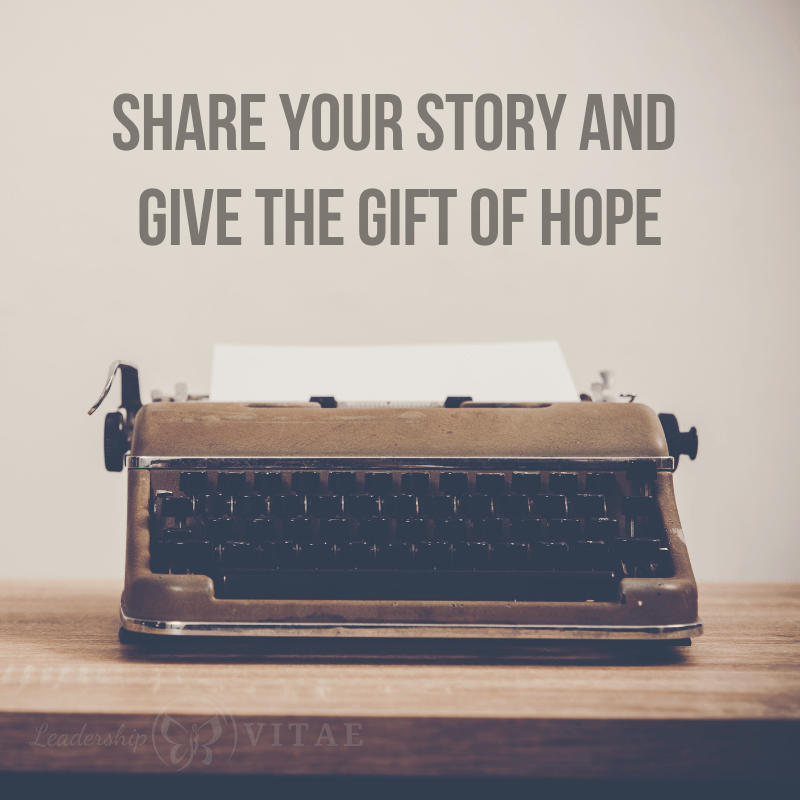
Humans are story tellers. Maybe we don’t all write, but we create meaning for ourselves and others. Share that meaning, building and strengthening connections between us.
We tell ourselves stories all the time. Take in events and experiences, interpret them, and filter them against our personal lens. They are reflected in what and how we share with our friends, family, and colleagues.
Stories are the great equalizer. We have examples of the rich and famous sharing personal experiences of loss and grief. Of joy. It reminds us that we are not alone and no one is immune to certain life events.
Our status does not dictate the value of our stories. Instead, our stories have inherent value in the gift of sharing.
We are all storytellers
I’ve been writing and sharing stories my entire life. Well before I started writing professionally, I wrote for family and friends. Before speaking professionally at conferences or panels, where stories have been key to connecting with audiences, I used anecdotes to connect individually as a leader and coach.
It wasn’t until working with an executive coach, who gave me language as an anecdotal leader, that I embraced the storyteller within me. She encouraged me to capture the stories, write a book, and begin sharing them more broadly.
There are two ways to get me to do pretty much anything. The first is to tell me I can’t. The second is by connecting what I’m doing with how it could help or hurt others. Once she unlocked the idea of helping others through stories, that natural tendency became a passion.
We all have the ability to help others by sharing our stories. To create space. Give hope. Inspire.
It may feel that sharing our stories centers ourselves. Maybe comes across as selfish. But there is no greater gift than sharing a story that unlocks someone else’s insights or helps them feel less alone. Joy shared is amplified, and challenges shared can feel easier to bear.
Rejecting the Insta-Life
With social media, story sharing has become de rigueur. Every platform has a way for each of us to capture and share stories. Yet, too frequently with social, it’s sugar coated, overly positive, and sets an expectation of some level of perfect “insta-life.”
That kind of story telling potentially makes us feel more alone and disconnected. Feeds self-doubt and negative comparisons.
Instead, people crave authenticity. Looking behind the curtain to what’s really happening. Of having moments where they think “that’s how I feel too.”
Real life stories are even more important in this time of social media perfection and the sense of isolation many are experiencing with COVID. To help those that face inequity, unhealthy environments, or just day-to-day struggles.
We all have story-telling accessible to us. We don’t need a website, or to be an author or speaker. Stories are part of our daily routine, or can be. If we embrace the idea of being seen.
Real stories for real life
For the third year in a row, I’ve sent a non-traditional holiday letter. One where I share the reality of the last year. This year, three years after divorce and a lot of life change, I was able to share more good than in prior years. But there were still dark moments and challenges I included.
It’s important for even those closest to me to know I’m far from perfect, and that I am overwhelmed at times. The feedback I get is an appreciation for realness in a sea of fake news. And that’s why I do it. Because they struggle too and may not always share.
During COVID, many of us have felt underwater at times. And yet, we may not have shared, because we know others are struggling too. In an effort to not overwhelm others, we end up closing ourselves off.
Such an approach causes us, and those we care about, to feel more isolated. Instead of sharing our struggles, and potentially making them easier for both of us to navigate them, they may seem harder.
I spent years hiding the struggles that went on behind closed doors. When I decided to reject the mask that smiles and lies, it allowed for greater and deeper connections with others. I began to hear similar stories in return. Realized that the things I was trying to hide were not as uncommon as I had feared.
When we hide or sugar-coat our stories, we hold a part of ourselves back. We hold back the gift of being seen, and limit the ability for others to be real in return.
Sharing is caring
Sharing our stories is a gift. One we can choose to give at any moment. It’s free. Maybe it costs us some humility or discomfort, but the return is endless.
Stories allow others to see themselves and feel less alone. Give them hope. Inspire them to take one step and then another. Provide a guide or touchstone to someone following a similar journey. Motivate someone to slay the dragon they are facing.
They can do the same for us. Sharing our struggles may inspire someone else to open up, helping us realize we aren’t the only ones. When we share, we open the door for sharing in return.
Ultimately, stories are the connection between us. Reminding us of our shared humanity.
We don’t have to be a writer or a speaker to be a story teller. Instead, we just have to honor our stories, and create room for the wonder of others’ as well.








